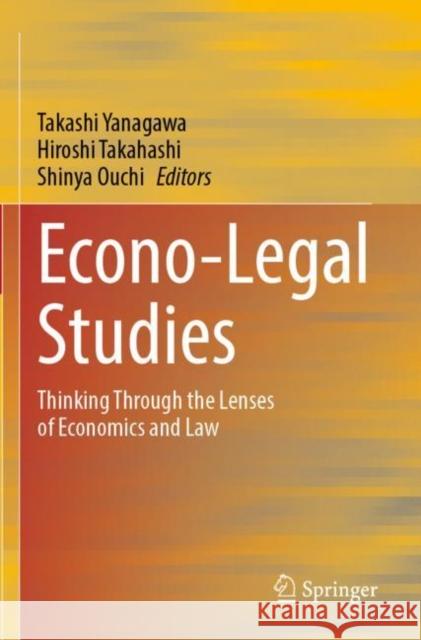Econo-Legal Studies: Thinking Through the Lenses of Economics and Law » książka
Econo-Legal Studies: Thinking Through the Lenses of Economics and Law
ISBN-13: 9789811651472 / Angielski / Miękka / 2022 / 271 str.
Econo-Legal Studies: Thinking Through the Lenses of Economics and Law
ISBN-13: 9789811651472 / Angielski / Miękka / 2022 / 271 str.
(netto: 201,92 VAT: 5%)
Najniższa cena z 30 dni: 210,55 zł
ok. 20 dni roboczych.
Darmowa dostawa!
This book is the first attempt to establish a collaborative and interdisciplinary field of economics and legal studies. It is designed to help readers – advanced undergraduate and graduate students, but also fellow scholars who are interested in interdisciplinarity – to think through the dual lenses of economics and law. “Econo-Legal Studies,” as we call it, is an economics that pays greater attention to the perspective and heritage of legal studies, and at the same time legal studies that fully utilize the views and methods of economics – while “law and economics” is just a one-way economic approach to law focusing on the effects of the latter on efficiency. The aim of this book is to encourage readers to think like economists and, at the same time, legal scholars as they analyze complex real-world issues. It presents stimulating discussions on the intersection of law and economics, the differences and unexpected similarities between the two perspectives, and the new insights to be gained when approaching a problem from both angles. For this purpose, the extensive corpus of knowledge produced within the framework of the Econo-Legal Studies interdisciplinary program at Kobe University can be capitalized on. Basic knowledge of both economics and law is also included in this volume, making it an engaging read for beginners in both fields as well.
This book is the first attempt to establish a collaborative and interdisciplinary field of economics and legal studies. It is designed to help readers – advanced undergraduate and graduate students, but also fellow scholars who are interested in interdisciplinarity – to think through the dual lenses of economics and law. “Econo-Legal Studies,” as we call it, is an economics that pays greater attention to the perspective and heritage of legal studies, and at the same time legal studies that fully utilize the views and methods of economics – while “law and economics” is just a one-way economic approach to law focusing on the effects of the latter on efficiency. The aim of this book is to encourage readers to think like economists and, at the same time, legal scholars as they analyze complex real-world issues. It presents stimulating discussions on the intersection of law and economics, the differences and unexpected similarities between the two perspectives, and the new insights to be gained when approaching a problem from both angles. For this purpose, the extensive corpus of knowledge produced within the framework of the Econo-Legal Studies interdisciplinary program at Kobe University can be capitalized on. Basic knowledge of both economics and law is also included in this volume, making it an engaging read for beginners in both fields as well.











